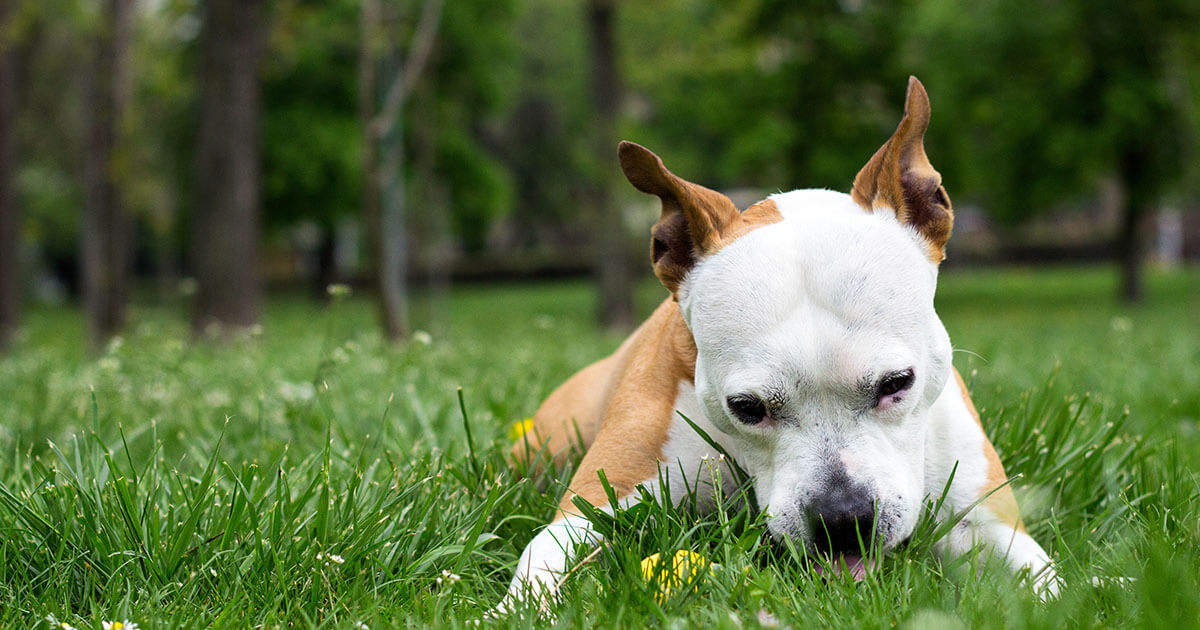There is often a question among dog owners about whether it is normal for their pets to munch and eat grass during walks or in their backyards. Many wonder if it is typical or if they should be worried if this happens often to their furry friends. Eating grass is normal for dogs and does not cause any health issues. Dogs usually do this to satisfy their curiosity and alleviate boredom. It should not be cause for concern. First, it’s essential to know that eating grass is an expected behaviour in dogs. Many dogs do this from time to time. It’s not usually a sign of illness or a big problem. Wild dogs and wolves also eat grass sometimes.
Reasons dogs might eat grass
There are several reasons why your dog might be eating grass. One common idea is that dogs eat grass when they feel sick. Some people think dogs do this to make themselves throw up. However, studies show that most dogs don’t seem sick before eating grass. Also, throwing up after eating grass is rare. Another reason might be that dogs simply like the taste or texture of grass. Just as humans enjoy different foods, dogs might find grass appealing. Some dogs might chew on grass out of boredom or to get attention from their owners.
Dogs might also eat grass to add fibre to their diet. Grass contains fibre, which can help with digestion. If a dog’s regular diet doesn’t have enough fibre, they might seek it out by eating grass. Some experts think that eating grass is an instinct left over by wild dogs.
Is eating grass safe for dogs?
In most cases, eating small amounts of grass is safe for dogs. However, there are a few things to watch out for. Make sure the grass your dog eats hasn’t been treated with pesticides or other chemicals. These can be harmful if eaten. Also, some types of grass or plants can be toxic to dogs. If you need more clarification, check with a vet or look it up on a trusted website like stubbydog.org. While grass-eating is usually harmless, there are times when it might be a sign of a problem. If your dog suddenly starts eating much more grass than usual, it could be worth looking into.
Manage grass-eating
You can take a few steps if you’re concerned about your dog eating grass. First, make sure your dog is getting enough exercise and mental stimulation. Bored dogs might eat grass for something to do. Talk to your vet about the best way to do this. They suggest eating different foods or adding safe, high-fiber foods to your dog’s meals. Outside, you can try to distract your dog from eating grass. Bring along toys or treats to keep them focused on other activities.
When your dog is prone to chewing, offering safe alternatives like chew toys or dental treats is a good idea. This might help satisfy their urge to chew without turning to grass. Eating grass is a common and usually harmless behaviour in dogs. It can be due to various reasons, from liking the taste to seeking fibre. While it’s generally safe, ensuring the grass isn’t treated with harmful chemicals is essential. If grass-eating comes with other concerning symptoms, it’s best to consult with a vet.


